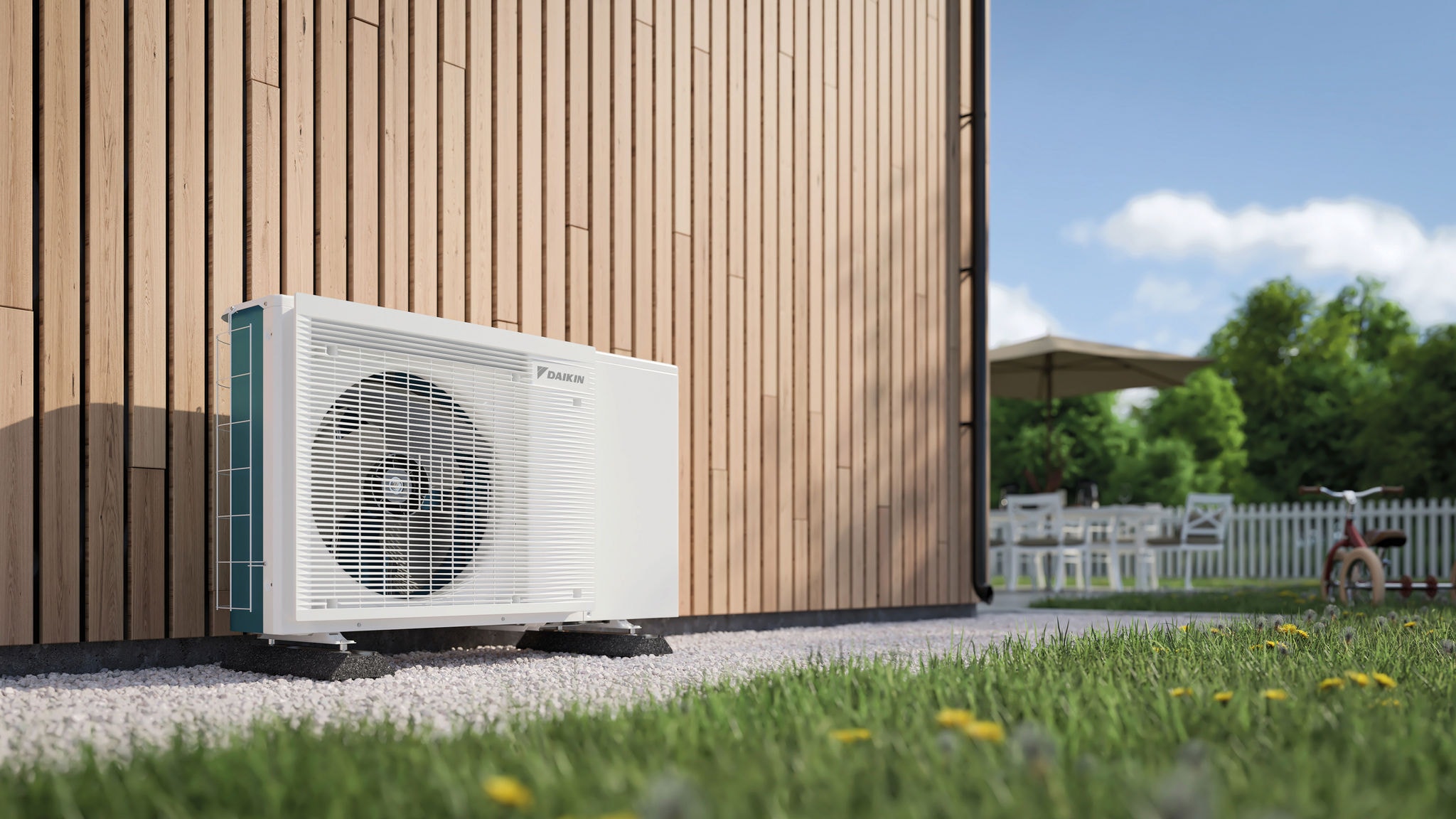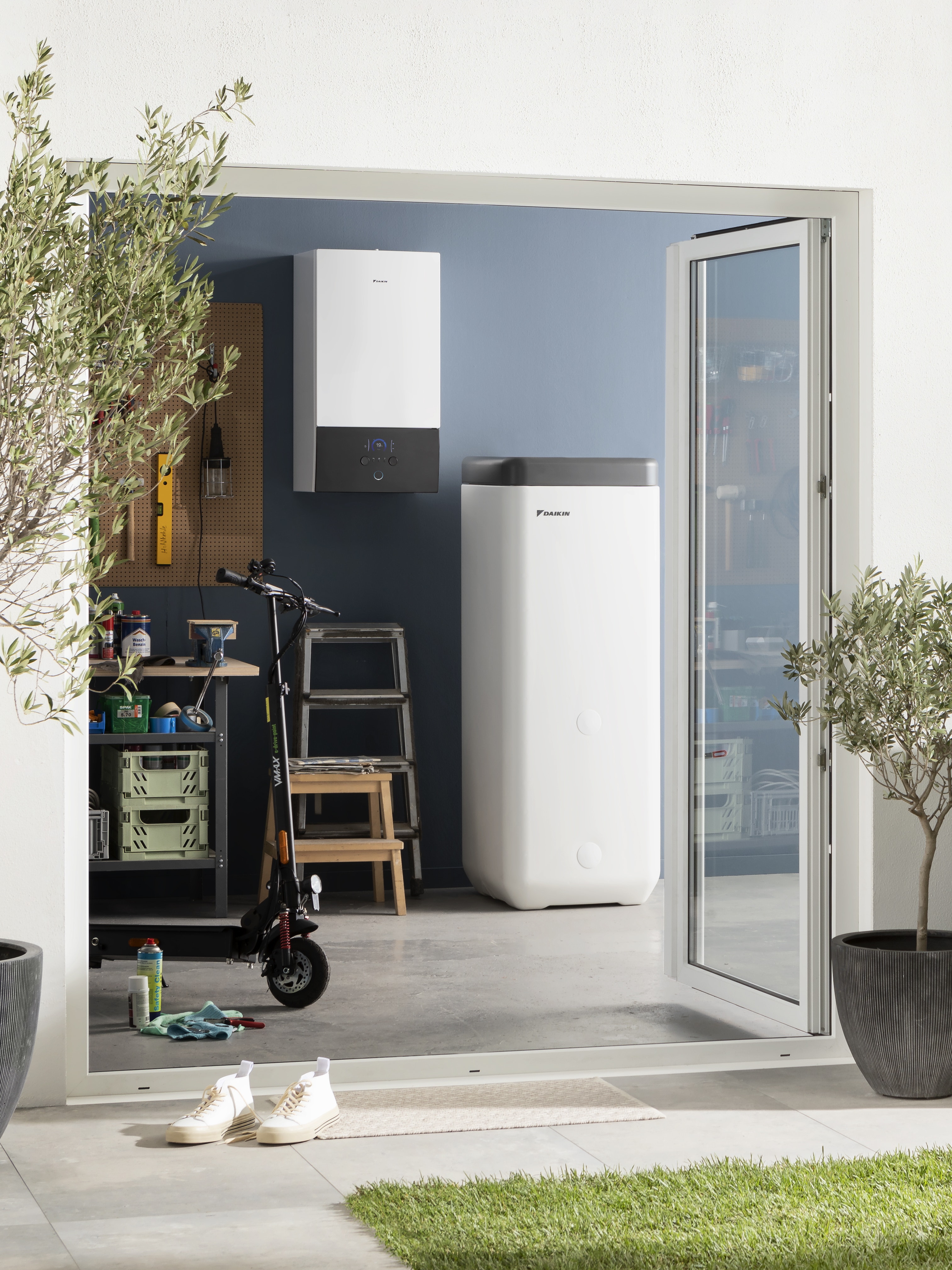A heat pump increases the value of your property
A heat pump improves your home's energy efficiency and can therefore help increase its sale value compared to similar, less efficient properties.

Moving to more sustainable forms of heating for the home is a vital part of global efforts to eliminate fossil fuels and reduce carbon emissions.
Heat pumps offer a low carbon alternative to heating, hot water and cooling, using renewable energy to reduce a home’s environmental impact and lower its energy bills.
Despite the many benefits of a heat pump, it does represent a significant investment, and we understand that homeowners first need to be clear on all the advantages this technology can bring, as well as the potential return on that investment.
There are many reasons to choose a heat pump and we’ve put together a detailed paper using fact-based research and peer-reviewed articles to explore those advantages in greater depth.
In this article we’ll focus on the additional value a heat pump can add to your property, including how much it can increase by and why.
The efficiency of a heat pump
One of the main benefits of a heat pump is efficiency. A heat pump takes the majority of its energy (around 70% to 80%) from a free and renewable source – the air or ground. The remainder is powered by electricity, which is also used much more efficiently.
Every kilowatt of electricity used in a Daikin air source heat pump, for example, generates between three and four kilowatts of renewable energy from the air, resulting in a 300% to 400% efficiency improvement.
The energy performance of a building is now a key factor in the buying and selling of property across Europe. Not only is this information a mandatory requirement, it’s something buyers take into account when choosing their next home. Therefore a more efficient home, with a higher energy performance rating, can often command a higher sale price.
Home Energy Performance Certificates (EPCs)
Energy Performance Certificates (EPCs) have been a mandatory part of the selling and renting process across the European Union and the UK for several years.
Based on the Energy Performance of Buildings Directive (EPBD), an EPC is a guide to how efficient a property is, based on how much energy it uses and how much it loses. Properties are rated class A to G, with A being the most efficient with the lowest running costs.
The rating can be influenced by factors such as the condition of the property, energy sources and insulation.
Using renewable energy sources, such as a heat pump, contributes towards the energy efficiency of a home. Our research shows that installing a heat pump can in fact help improve a home’s energy rating by one or two classes.
This depends largely on two factors: the original heating system, such as an oil fuel non-condensing boiler or a gas condensing boiler; and whether existing emitters, such as radiators or underfloor heating, are changed or retained.
How energy performance impacts property price
A higher energy rating is a good indication that a home wastes less energy and is therefore cheaper to run, which can boost its appeal to potential buyers. These benefits are reflected in the value of the home.
As part of our research, we collected relevant evidence of energy efficiency premiums across Western Europe, focusing particularly on Germany, France, Italy, Spain, Belgium, the Netherlands and the UK.
In all countries, energy efficiency interventions resulting in a jump in EPC class, are associated with a premium on the sale price.
This ranged from a 2% increase, to as much as 18% in some countries, depending on how many energy classes are jumped and the individual factors assessed.
For example, homes in urban areas of Germany experience an average price increase of 6.3% when energy consumption decreases by 100 kWh/m2a. In France, the impact on house prices of going from a D rating to A or B ranges from a 6% to 14% increase.
In Spain, A, B or C ratings command an average 7.5% premium compared to homes with a D, E, F or G certificate. In Italy, the change in value between an E class and a D class is around 5% to 6%, rising to between 14% and 18% when moving from G to D.
The added value of a heat pump
In summary, adding low carbon heating solutions to a home increases its energy efficiency and can therefore result in a higher energy performance certificate rating.
This can positively impact the sale price of a property as more buyers seek to invest in homes with lower energy costs, while preparing for future legislation around fossil fuels, and taking steps to reduce their carbon footprint.
For detailed facts and figures, sources and references, please refer to the complete paper.
